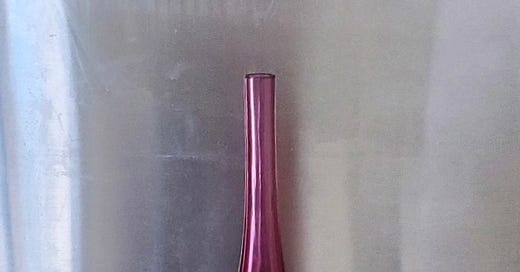When my mother was 45 or so, her mother died. I remember her sending me upstairs to bring her a handkerchief. It was the only time in my childhood that I saw her cry. The next time was when my father died, more than 25 years later.
My mother was matter of fact about most things, including dying. She’d tell us she didn’t want a funeral, she wanted to be cremated (though that was supposedly forbidden in her world), she didn’t believe in heaven or hell. She was so cold-blooded that for years, she kept labels on her prized possessions—paintings, dishes, tchockes—specifying which of her four children should inherit which item. We’d laugh at her: “Really, Mom? You think I want this?”
She prided herself on being “sophisticated”—she had grown up in New York City and relocated to Wilkes-Barre, Pennsylvania, to marry my father, whom she adored but who was a bit less cosmopolitan than she. She was beautiful but didn’t think so. As a kid, I looked so like her that even strangers on the street knew who I was.
She always wanted to be a writer or some kind of artist, and I think she never completely got over leaving New York, which we visited a lot while her parents were alive. She was both competitive with me and very protective. I sometimes think that by going to New York to work in publishing—the arts!—I was reclaiming the life she thought she should have had. In her later years she started writing and even painting a bit. I wish I had been nicer to her about that.
I bought this vase for her on a teen tour to Venice in the 1970s. Even as a kid, I knew she was impossible to please, but I figured this was elegant enough to appeal. Up to then, I think, I’d only given her perfume from the local drugstore, which, to my knowledge, she never used.
The vase was handblown and beautiful. She lived to be 96 and had it in her breakfront until we four packed up the house. It never sported one of her labels because it never needed one. I knew she meant for me to have it. And now I do.
—Sara Nelson




